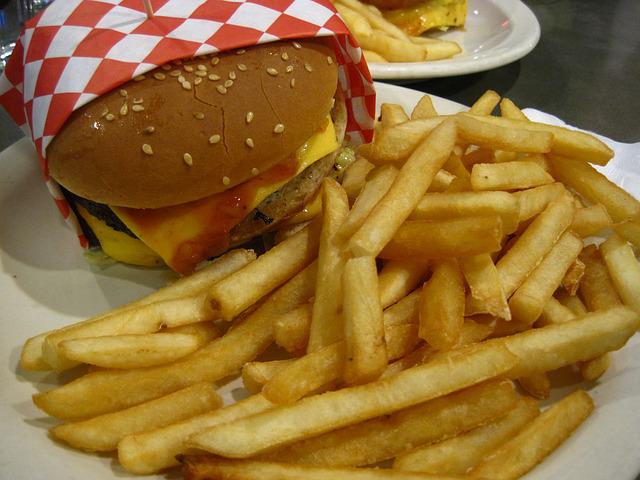
“What you eat is who you are.” When people claim that, they’re referring to the health benefits of a balanced diet. But this isn’t the case at all.
Junk food, in fact, can damage your body and brain if you consume too much of it while between the ages of 10 and 19.
We are all aware that unhealthy food is harmful to our health, yet we consume it nevertheless. Why?
Because junk foods, according to studies, have been refined to target your sweet spot – your brain. They are designed to be irresistible and make you eat more than you need.
The food industry has known for a while that the way to our hearts (and stomachs) is through our brains. They know that if they can control what we eat, they can control us. And this is precisely why junk foods are so addictive.
How does junk food affect the brain?
Junk food and brain damage are linked because the foods we eat influence the way our brains develop and function.
Our brains are made up of neurons, which communicate with each other through synapses.
These connections form pathways that allow us to learn, remember, and make decisions. But in order for them to work properly, they need the right fuel.
The nutrients in healthy foods help to support the structure and function of our brains. But junk food does the opposite.
It contains unhealthy fats, artificial additives, and refined sugars that can damage our brain cells and hinder their ability to communicate with each other.
This can lead to a number of problems, such as:
- Difficulty concentrating
- Poor memory
- Trouble making decisions
- Mood swings
- Anxiety
- Depression
In the long term, these problems can lead to more serious mental health issues, such as dementia and Alzheimer’s disease.
So if you’re wondering, “Does junk food kill brain cells?” the answer is yes. It can damage them in the short and long term, leading to a range of problems.
How to protect your brain from junk food
The good news is that there are ways to protect your brain from the negative effects of junk food.
Eat a healthy diet
This is the most important thing you can do for your brain. Make sure you include plenty of fruits, vegetables, and whole grains in your diet.
Avoid processed foods
These are loaded with unhealthy fats, artificial additives, and refined sugars.
Avoid sugary drinks
These are some of the unhealthiest things you can eat. They can damage your brain cells and contribute to weight gain.
Get exercise
Exercise is not only good for your body, but it’s also good for your brain. It helps to keep your brain cells healthy and communication between them smooth.
Get enough sleep
Lack of sleep can have a negative effect on the health of your brain. Make sure you get at least 7-8 hours of sleep each night.
Manage stress
Stress can have a negative effect on the health of your brain. Learn to manage it effectively.
Practice mindfulness
Mindfulness can help you to be more aware of what you’re eating and how it’s affecting your body and mind.
Avoid addiction
Junk food can be addictive, so be careful not to let it control you.
Seek help if needed
If you feel like you’re struggling with junk food and its negative effects on your brain, don’t hesitate to seek help from a professional.
Junk food can be damaging to our brains, leading to concentration problems, poor memory, mood swings, and more. However, there are ways to protect our brains from the harmful junk food can do.
Eating a healthy diet, avoiding processed foods, getting exercise, getting enough sleep, and managing stress are all important steps. And if you need extra help, don’t hesitate to seek professional assistance.
Does junk food affect IQ?

There is no evidence that junk food affects IQ, but it can definitely have a negative effect on the health of our brains.
Junk food can lead to problems such as difficulty concentrating, poor memory, trouble making decisions, mood swings, anxiety, and depression.
These problems can lead to more serious mental health issues in the long term.
So if you’re wondering, “Does junk food kill brain cells?” the answer is yes. It can damage them in the short and long term, leading to a range of problems.
How junk food affects your mental health?
There is a lot of evidence that junk food can have a negative effect on the health of our brains. It can damage our brain cells, impede communication between them, and lead to a range of problems, such as difficulty concentrating, poor memory, mood swings, anxiety, and depression.
These problems can lead to more serious mental health issues in the long term. So if you’re wondering, “Does junk food kill brain cells?” the answer is yes. It can damage them in the short and long term, leading to a range of problems.
- Related post: Nutritional Foods For Kids That Can Boost Their Brain Health
- Related post: What are the most incredible brain facts that you should know
How does junk food cause depression?
There is some evidence that junk food can cause depression.
It can damage our brain cells, impede communication between them, and lead to a range of problems, such as difficulty concentrating, poor memory, mood swings, anxiety, and depression.
These problems can lead to more serious mental health issues in the long term. So if you’re wondering, “Does junk food kill brain cells?” the answer is yes. It can damage them in the short and long term, leading to a range of problems.
The takeaway
Junk food can have a negative effect on our brains, leading to problems such as difficulty concentrating, poor memory, mood swings, anxiety, and depression.
These problems can lead to more serious mental health issues in the long term.
So if you’re wondering, “Does junk food kill brain cells?” the answer is yes. It can damage them in the short and long term, leading to a range of problems.
You can protect your brain from the harmful effects of junk food by eating a healthy diet, avoiding processed foods, getting exercise, getting enough sleep, and managing stress.
And if you need extra help, don’t hesitate to seek professional assistance.



